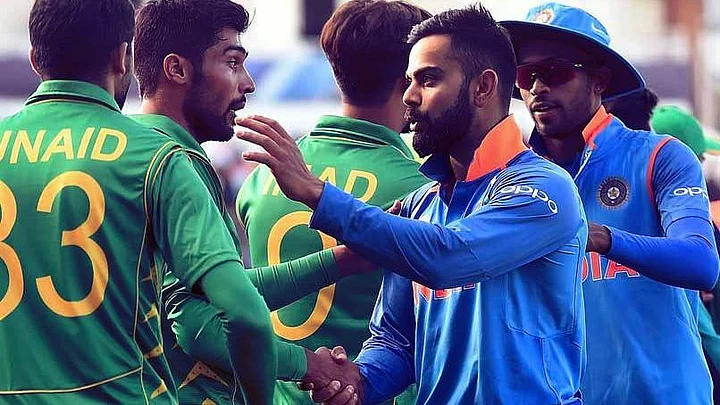“India should not/must not play Pakistan at the [add any multi-team tournament here].”
It is a commonly-echoed sentiment ahead of any new chapter of the titanic clash, reduced solely to an ICC-event-only rivalry for the best part of the last decade.
But the sentiment is back, and with its most fervent pitch – for this time, it comes after deadliest terror attack in Jammu and Kashmir in three decades.
The Pulwama attack on 14 February, which claimed the lives of 40 CRPF jawans, has sparked widespread fury on the Indian side of one of the most fractious borders in the world, while reigniting calls to avoid any engagement with Pakistan – including on the cricket field, where the two nations are scheduled to meet in their ICC World Cup 2019 clash at Manchester on June 16.
Here are previous instances of teams boycotting/forfeiting matches at the ICC Cricket World Cup.
1996: Australia, against Sri Lanka
The first World Cup to have three co-hosts wasn’t without its troubles for the newest host among the mix – although Sri Lanka had little to be unhappy about come the end of the tournament.
A month prior to their historic victory in the final at Lahore’s Gaddafi Stadium, Sri Lanka lay abandoned by half the cricket community. An LTTE attack in Colombo three weeks before the start of the competition drove several participants from outside Asia away from games scheduled to be held in the Lankan capital.
Of the four group fixtures Sri Lanka were slated to play at home, only two actually went through, with minnows Zimbabwe and Kenya the only teams agreeing to travel to the country.
One of the two teams to opt out of the games in Sri Lanka were Australia – who, along with West Indies, gave a walkover to the hosts as a result.
In a quirk of fate, however, Sri Lanka would get their meeting with Australia, in the final no less. The rest is consigned to cricket history.
1996: West Indies, against Sri Lanka
West Indies, too, didn’t make the trip to Sri Lanka, citing the same reason as Australia.
It was a stance not appreciated by the organisers; in addition to giving up the matches, both West Indies and Australia were slapped with heavy fines.
But just like Australia, West Indies too didn’t pay much of a price in terms of tournament progress: they qualified for the quarter-finals as the fourth team from the group, where they would beat Group B toppers South Africa before going down to Australia in the semis.
Sri Lanka more than made the most of the points benefit, topping the group with five wins out of five, before going on to win the World Cup altogether.
2003: England, against Zimbabwe
Concerns around security were raised once again in 2003 – another World Cup hosted by three countries, this time in Africa.
The tense political climate in Zimbabwe at the time, with Robert Mugabe’s controversial reign at its peak, was a cause of concern to some teams, none more so than England.
After days of meetings and extended deadlines – and death threats, too – the ECB finally decided to not play the scheduled Pool A rubber in Harare.
It meant the four points on offer were awarded to Zimbabwe, and it proved telling in the final calculations: both England and Zimbabwe finished with three wins each, but a washout in Zimbabwe’s final game, against Pakistan, saw them pip the more-fancied English to a spot in the Super Sixes.
2003: New Zealand, against Kenya
During the same edition, the other group would witness a similar storyline: but one whose implications would only truly be felt towards the business end of the competition – and result in arguably the greatest shock in World Cup history.
Kenya’s odds-defying journey into the semi-finals of the ICC World Cup 2003 was a story to tug at the heart; a nation, torn by internal crisis and admonished (politically) by the world, surviving a tournament built for the game’s ‘elite’, and reaching a stage a step too far for several other heavyweights.
They stunned 1996 world champions Sri Lanka, but the points won through a walkover given by New Zealand would aid them no less.
The Kiwis, fearing for the security of their players, chose not to contest their Pool B encounter in Nairobi, but did manage to qualify for the Super Sixes, along with Kenya and Sri Lanka.
The format, however, saw points carried forward from the group stage, which meant Kenya had the bonus of four points over New Zealand. That eight-point swing sealed the fate of the two teams, as Kenya finished the Super Sixes third with 14 points – and New Zealand fifth, with eight.
